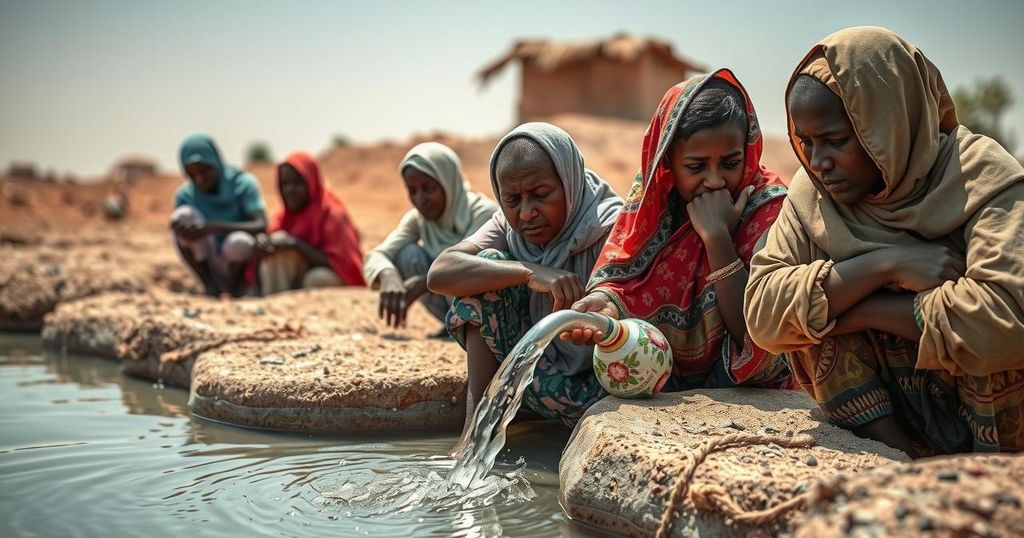Sudanese refugees in Chad, particularly in Tongori camp, face dire water shortages and inadequate living conditions following their forced relocation from Adré camp. Aisha Adam Ishag and others are compelled to seek water from contaminated sources, posing health risks. The absence of humanitarian support exacerbates their situation, leading to increased tensions with local communities and critical needs for basic services.
Sudanese refugees in Chad are grappling with severe water shortages exacerbated by their forced relocation to remote regions. Aisha Adam Ishag, who fled the violent conflict in El Geneina, West Darfur, currently resides in Tongori camp, where she receives only about 60 liters of water daily. This amount is insufficient, compelling her to seek water from polluted sources. Despite the challenges, thousands of refugees, including families, endure long treks for increasingly scarce potable water, amidst rising tensions with local communities. Reports indicate that humanitarian support is virtually non-existent, leaving the refugees vulnerable and in desperate need of essential services while facing both thirst and illness due to contaminated water supplies.
The humanitarian situation for Sudanese refugees in Chad has intensified, particularly following the recent outbreak of conflict in Sudan. The Chadian authorities have relocated many refugees to camps like Tongori, which are removed from vital resources and aid organizations. The ongoing absence of drinking water and the strained relations with local populations have led to an exacerbation of health risks. The United Nations has flagged this situation as critical, urging for increased support and intervention to address the dire needs of these vulnerable populations.
In conclusion, the plight of Sudanese refugees in Chad highlights a tragic humanitarian crisis marked by severe water shortages and inadequate living conditions. The forced relocations to camps such as Tongori have led to heightened tensions and health risks among these communities. With over 600,000 refugees in Chad and a pressing need for humanitarian assistance, it is imperative that organizations and governments take immediate actions to alleviate their suffering and improve access to essential resources.
Original Source: www.dabangasudan.org






